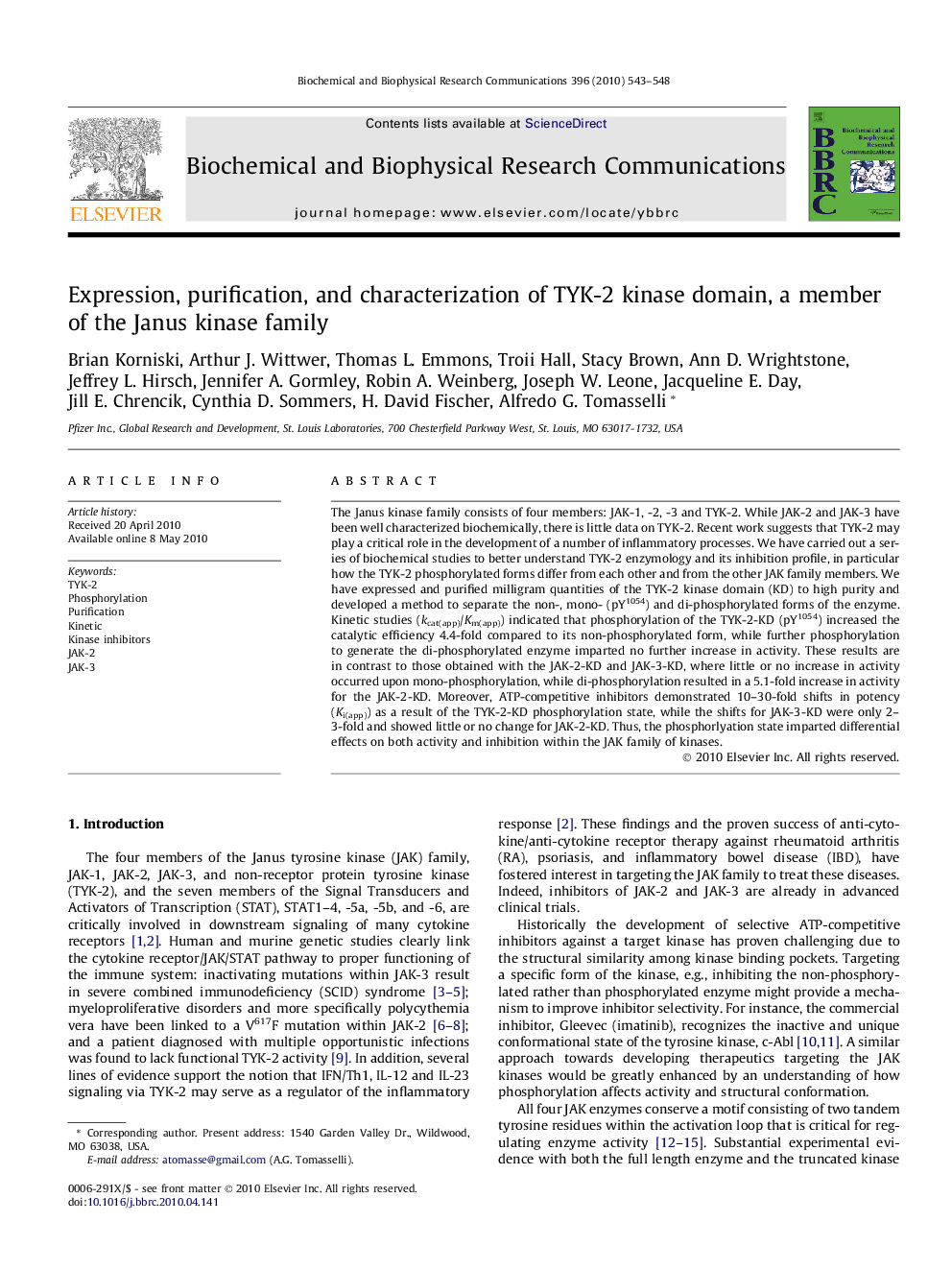| کد مقاله | کد نشریه | سال انتشار | مقاله انگلیسی | نسخه تمام متن |
|---|---|---|---|---|
| 1932252 | 1050575 | 2010 | 6 صفحه PDF | دانلود رایگان |

The Janus kinase family consists of four members: JAK-1, -2, -3 and TYK-2. While JAK-2 and JAK-3 have been well characterized biochemically, there is little data on TYK-2. Recent work suggests that TYK-2 may play a critical role in the development of a number of inflammatory processes. We have carried out a series of biochemical studies to better understand TYK-2 enzymology and its inhibition profile, in particular how the TYK-2 phosphorylated forms differ from each other and from the other JAK family members. We have expressed and purified milligram quantities of the TYK-2 kinase domain (KD) to high purity and developed a method to separate the non-, mono- (pY1054) and di-phosphorylated forms of the enzyme. Kinetic studies (kcat(app)/Km(app)) indicated that phosphorylation of the TYK-2-KD (pY1054) increased the catalytic efficiency 4.4-fold compared to its non-phosphorylated form, while further phosphorylation to generate the di-phosphorylated enzyme imparted no further increase in activity. These results are in contrast to those obtained with the JAK-2-KD and JAK-3-KD, where little or no increase in activity occurred upon mono-phosphorylation, while di-phosphorylation resulted in a 5.1-fold increase in activity for the JAK-2-KD. Moreover, ATP-competitive inhibitors demonstrated 10–30-fold shifts in potency (Ki(app)) as a result of the TYK-2-KD phosphorylation state, while the shifts for JAK-3-KD were only 2–3-fold and showed little or no change for JAK-2-KD. Thus, the phosphorlyation state imparted differential effects on both activity and inhibition within the JAK family of kinases.
Journal: Biochemical and Biophysical Research Communications - Volume 396, Issue 2, 28 May 2010, Pages 543–548